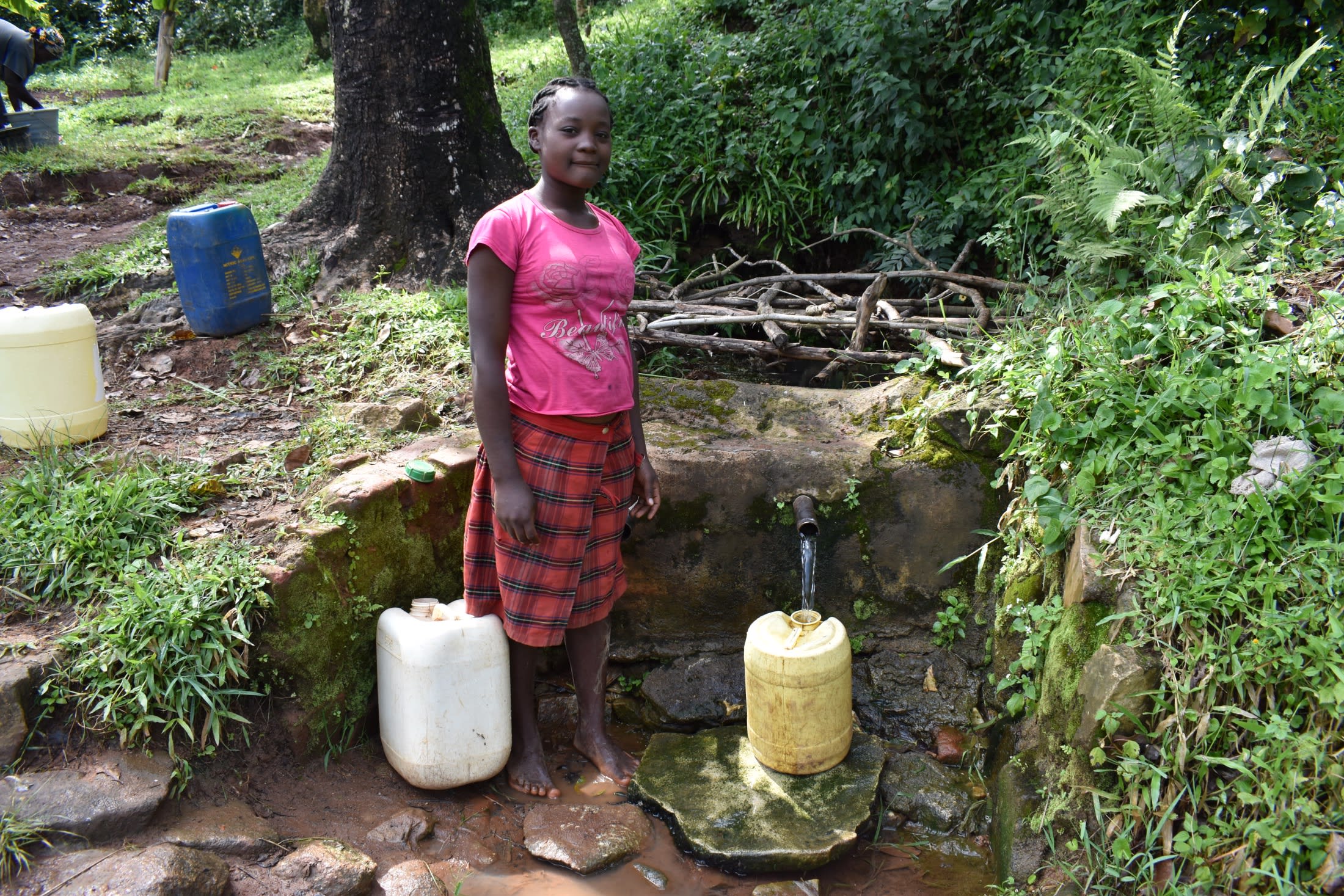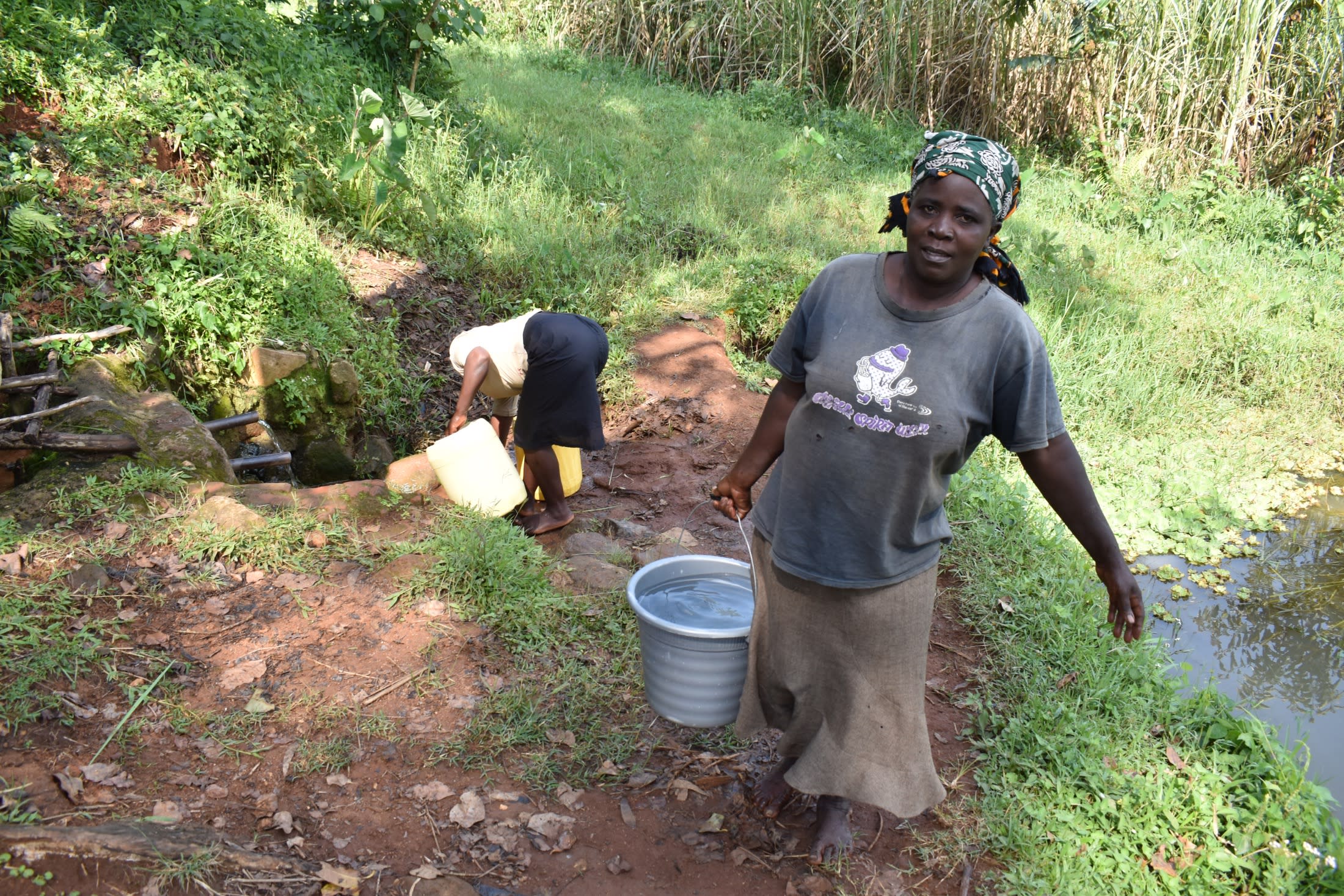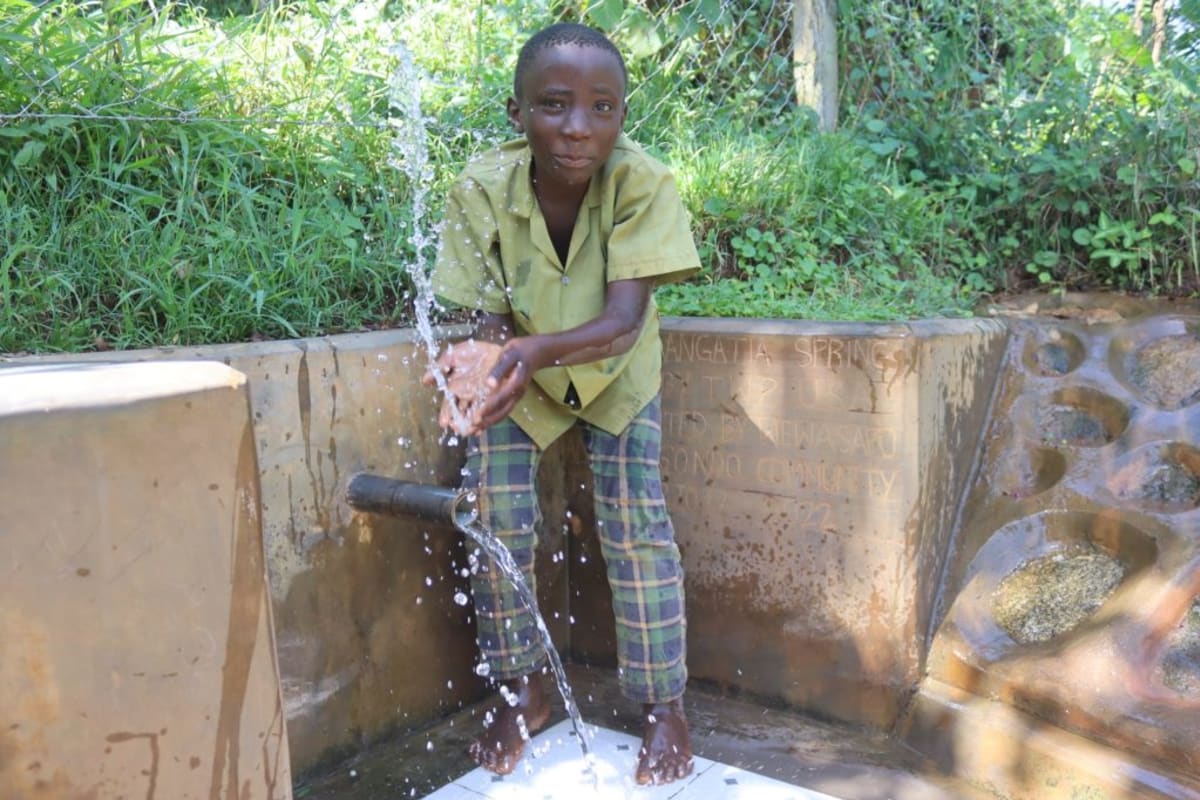Shing'odo is a rural village with thatched houses and vast parcels of land planted with sugar cane. The 250 community members who live here are primarily sugar cane farmers that rely on the Mulima Angatia Spring as their primary water source.
The unprotected spring presents some significant challenges for people that use it to provide the water they consume every day. Most disturbingly, the water they collect from the spring is contaminated and unsafe for human consumption, leading to water-related illnesses such as typhoid, cholera, and sore throats.
"Consuming water from the spring does put one's health at risk. I have been a victim of consuming contaminated water. Two years ago, I was diagnosed with a typhoid infection, forcing me to seek medical attention," said Caleb Angatia, a local farmer and the spring's namesake.
Naomi (in the photo below) shared, "Drinking contaminated water does put my health at risk. On various occasions, [I] am forced to stay away from school due to contracting diseases related to water to seek medical attention. This has really dragged my performance [down] in classwork."

People miss out on valuable opportunities to do productive activities like work, household chores, or school because the spring is very overcrowded and congested. Some even decide not to wait in long lines and go back to their homes with no water for their daily needs.

The spring is also difficult to access and there is the risk of slipping and getting hurt.
Protection of the spring will allow for the collection of clean, safe water by community members quickly and enable them to focus their time and energy on other things.
What We Can Do:
Spring Protection
Protecting the spring will help provide access to cleaner and safer water and reduce the time people have to spend to fetch it. Construction will keep surface runoff and other contaminants out of the water. With the community's high involvement in the process, there should be a good sense of responsibility and ownership for the new clean water source.
Fetching water is a task predominantly carried out by women and young girls. Protecting the spring and offering training and support will, therefore, help empower the female members of the community by freeing up more of their time and energy to engage and invest in income-generating activities and their education.
Training on Health, Hygiene, COVID-19, and More
To hold trainings during the pandemic, we work closely with both community leaders and the local government to approve small groups to attend training. We ask community leaders to invite a select yet representative group of people to attend training who will then act as ambassadors to the rest of the community to share what they learn. We also communicate our expectations of physical distancing and wearing masks for all who choose to attend.
The training will focus on improved hygiene, health, and sanitation habits in this community. We will also have a dedicated session on COVID-19 symptoms, transmission routes, and prevention best practices.
With the community's input, we will identify key leverage points where they can alter their practices at the personal, household, and community levels to affect change. This training will help to ensure participants have the knowledge they need about healthy practices and their importance to make the most of their water point as soon as water is flowing.
Our team of facilitators will use a variety of methods to train community members. Some of these methods include participatory hygiene and sanitation transformation, asset-based community development, group discussions, handouts, and demonstrations at the spring.
One of the most important issues we plan to cover is the handling, storage, and treatment of water. Having a clean water source will be extremely helpful, but it is useless if water gets contaminated by the time it is consumed. We and the community strongly believe that all of these components will work together to improve living standards here, which will help to unlock the potential for these community members to live better, healthier lives.
We will then conduct a small series of follow-up trainings before transitioning to our regularly scheduled support visits throughout the year.
Training will result in the formation of a water user committee, elected by their peers, that will oversee the operations and maintenance of the spring. The committee will enforce proper behavior around the spring and delegate tasks that will help preserve the site, such as building a fence and digging proper drainage channels. The fence will keep out destructive animals and unwanted waste, and the drainage will keep the area's mosquito population at a minimum.

 Protected Spring
Protected Spring
 Rehabilitation Project
Rehabilitation Project





































